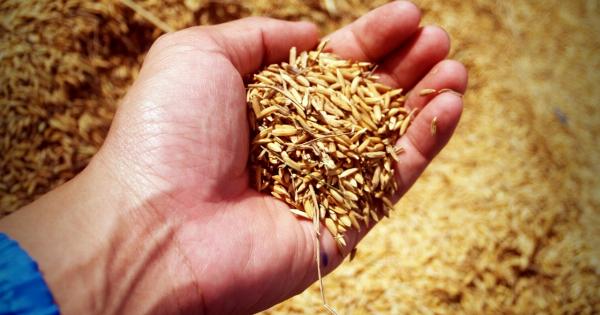Whole grains are an essential part of a healthy diet. Many people do not realize the importance of consuming whole grains and instead opt for refined grains that are stripped of their valuable nutrients.
Whole grains are a rich source of vitamins, minerals, dietary fiber, and phytochemicals that help improve overall health. In this article, we will explore the benefits of incorporating whole grains into your diet and how they can help improve your health and wellbeing.
What are whole grains?
Whole grains are grains that contain all parts of the grain kernel – the bran, germ, and endosperm. This means that they have not been processed to remove the bran and germ, which are valuable sources of fiber, vitamins, and minerals.
Common whole grains include brown rice, whole wheat, oats, quinoa, barley, and millet. These grains can be eaten whole or used in the form of flour in baked goods and other recipes.
Improved Digestion
One of the most significant benefits of consuming whole grains is improved digestion. Whole grains contain high amounts of dietary fiber, which helps prevent constipation and regulates bowel movements.
The fiber in whole grains also helps promote the growth of healthy gut bacteria, which further aids digestion. Consuming whole grains has also been linked to a reduced risk of colon cancer due to their high fiber content.
Lower Risk of Heart Disease
Consuming whole grains has also been linked to a lower risk of heart disease. Whole grains contain high amounts of soluble fiber, which helps lower cholesterol levels in the blood. Lower cholesterol levels reduce the risk of heart disease and stroke.
Whole grains also contain antioxidants that can help reduce inflammation in the body and protect against oxidative stress, both of which are risk factors for heart disease.
Lower Risk of Type 2 Diabetes
Consuming whole grains has also been linked to a lower risk of type 2 diabetes. Whole grains contain complex carbohydrates that are slowly broken down by the body, leading to a more gradual release of glucose into the bloodstream.
This helps prevent spikes in blood sugar levels that are associated with an increased risk of type 2 diabetes. Whole grains also contain magnesium, a mineral that is essential for insulin sensitivity and glucose regulation in the body.
Weight Management
Consuming whole grains can also aid in weight management. Whole grains are rich in fiber, which helps you feel full and satisfied after meals, reducing the need to snack between meals.
Whole grains can also help regulate insulin levels, which can prevent overeating and promote the feeling of fullness. Research has shown that a diet high in whole grains is associated with lower body weight and decreased body fat percentage.
Improved Nutrient Intake
Whole grains are a rich source of vitamins and minerals, including B vitamins, iron, zinc, and magnesium. Consuming whole grains can help improve overall nutrient intake and prevent nutrient deficiencies.
In contrast, refined grains, which have had the bran and germ removed, are often enriched with vitamins and minerals, but they still lack the valuable fiber and phytochemicals found in whole grains.
Reduced Inflammation
Whole grains are rich in antioxidants, which can help reduce inflammation in the body. Chronic inflammation has been linked to a variety of health issues, including heart disease, arthritis, and some forms of cancer.
Consuming whole grains can help reduce inflammation and protect against oxidative stress, which can lead to the development of chronic diseases.
Improved Brain Function
Consuming whole grains can also help improve brain function. Whole grains contain complex carbohydrates that provide a steady supply of glucose to the brain, which is essential for optimal brain function.
Whole grains also contain B vitamins, which are important for brain health and cognitive function.
Reduced Risk of Cancer
Consuming whole grains has also been linked to a reduced risk of certain types of cancer, including colon, breast, and pancreatic cancer.
The fiber and phytochemicals in whole grains may help reduce inflammation and protect against DNA damage that can lead to cancer. In addition, consuming whole grains has been shown to reduce levels of estrogen in the body, which can reduce the risk of breast cancer.
Conclusion
Consuming whole grains is an essential part of a healthy diet. Whole grains provide a rich source of fiber, vitamins, minerals, and phytochemicals that provide numerous health benefits.
Incorporating whole grains into your diet can help improve digestion, reduce the risk of heart disease and type 2 diabetes, aid in weight management, improve nutrient intake, reduce inflammation, improve brain function, and reduce the risk of cancer. So why not switch from refined grains to whole grains today and enjoy the many health benefits that they have to offer?.



























